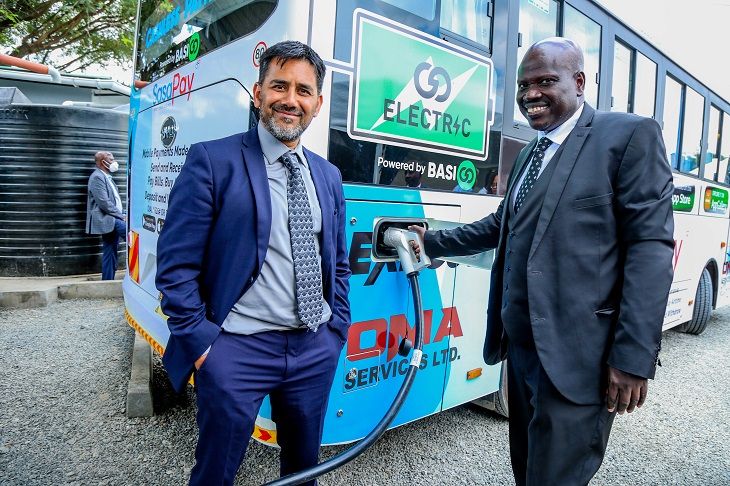Nairobi-based electric mobility startup, BasiGo, has unveiled plans to deploy 1,000 battery-powered buses across Kenya by 2027.
According to reports, so far, the company has assembled 53 buses locally, with another 27 currently in production at its new facility in Thika, about 50 kilometers north-east of Nairobi.
Built in partnership with Kenya Vehicle Manufacturers (KVM), the plant is the country’s first dedicated electric bus assembly line and part of a KES 3.5 billion ($27 million) investment. By 2026, BasiGo says it expects output to rise to 20 buses per month.
“BasiGo has built a deep understanding of E-Bus requirements for the Kenyan market,” the company’s co-founder and CEO, Jit Bhattacharya, said in a recent statement.
What You Should Know
According to a TechCabal’s report, the company said that its new KL-9 model is designed specifically for Nairobi’s congested commuter routes. The bus comes with a 300kWh battery that can be fully charged in two hours.
Major matatu operators, including Citihoppa, Ummoinner, and Rembo Shuttles, have already integrated the buses into their fleets.
“We are proud to be working with an industry leader like King Long to introduce a state-of-the-art electric bus that we believe will redefine public transport operations in Kenya.”
Since its founding in 2021, BasiGo has raised $63.1 million in funding from investors. Its latest financing round was a $24 million Series A led by Africa50.
Beyond Kenya, the startup is also preparing to expand into new markets, with Nigeria and Tanzania in its sights. If successful, analysts say BasiGo’s model could serve as a blueprint for electric mobility in Africa’s rapidly urbanizing cities.
What This Means
Kenya currently has about 9,000 registered electric vehicles, according to the National Transport and Safety Authority.
BasiGo says it hopes to accelerate uptake by developing a leasing model. Instead of requiring operators to buy buses outright, the company retains ownership, handles charging and maintenance, and charges operators a daily fee.
The company says the approach is designed to overcome cost barriers for fleet owners while ensuring reliable performance.
Electrifying Kenya’s transport system could be transformative. Road transport accounts for more than 40% of Kenya’s total energy consumption and is the fastest-growing source of emissions.
Industry experts say BasiGo’s move could significantly reduce emissions from the diesel-fuelled minibus network that underpins the nation’s urban transport.
Talking Points
It is significant that BasiGo has established Kenya’s first dedicated electric bus assembly line in partnership with Kenya Vehicle Manufacturers.
This not only anchors local production capacity but also signals a serious commitment to scaling clean transport solutions within the country. By targeting the daily realities of matatu operations, BasiGo is tailoring technology to fit one of Africa’s most challenging transit systems.
At Techparley, we see how electrifying Kenya’s diesel-dependent minibuses could reshape urban mobility, cutting both emissions and fuel costs.
However, challenges remain. Slow uptake reflects high upfront costs, inadequate charging infrastructure, and the absence of a clear national EV strategy. Without policy alignment, the transition risks stalling.
With the right mix of investment, supportive policy, and operator buy-in, electric buses could become a blueprint for tackling urban pollution and energy dependency across the continent.





